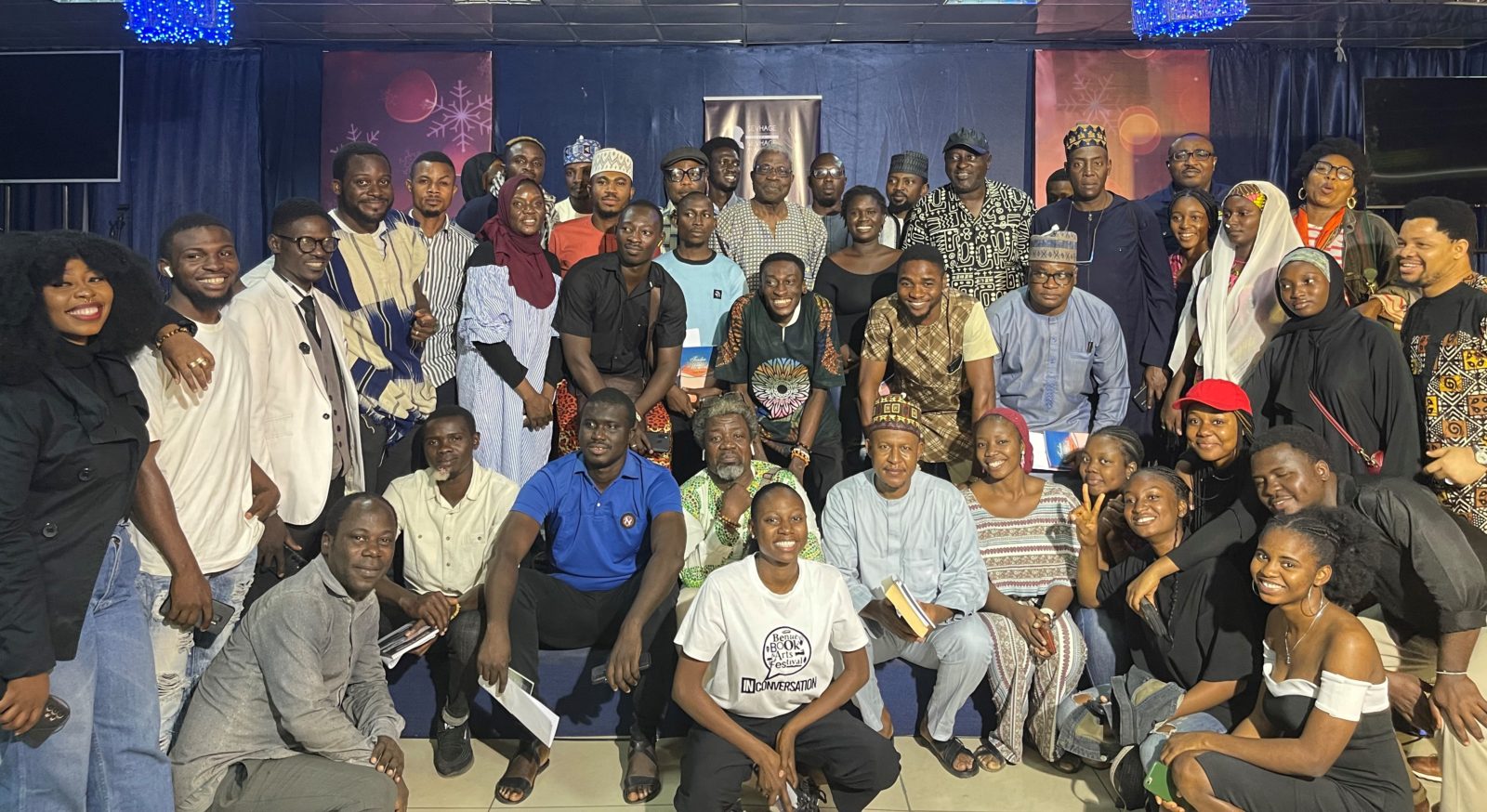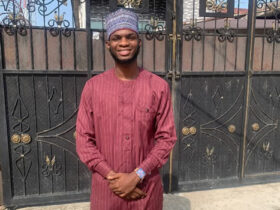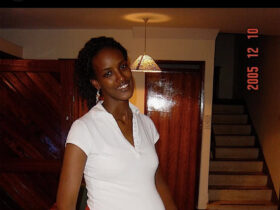I have spent most of my writing life trying to write more than I ever wrote. I turn the sentences or metaphors like roasted yam and decide that the fire of creativity or perfection has not ripened it enough. After over a decade of writing—getting paid, winning awards, and getting kisses from ladies who otherwise might not have looked twice at my class—I still don’t believe in my first sentences and lines. Perhaps, this is why Jonathan Raban became my Charon ferrying me always through the energy to write. Passing through his boat whenever I carry For Love and Money, his voice comes out “Write — but write what? If nothing else came to mind, you could write about not writing in a room in Highgate.”
After my fifth cup of tea: 3in1 Cadbury, 3in1 Nescafe, Lipton, and ginger tea, I still could not write about meeting Osundare. The obolos coin that Raban needs to ferry me to write is to scheme through his book and attempt to write about being unable to write. It works. I am a better reader than a writer. Perhaps, reading does not question me as much as writing does. There are books that I pick and never drop until I am done because they speak for me. Niyi Osundare’s Tender Moment and indeed all of his books belong to this class of texts. Most books that hold me until I begin to sign under every page usually become my companion whenever I travel. There are always five books travelling with me: Tender Moments, For Love and Money, Sophie’s World by Jostein Garder, Alone by Rod McKuen, and Literature, Nationalism and the Poetics of Integration by E. E. Sule. These selections are my most-read books and they range from poetry, fiction, and critical writing.
I read Tender Moments on a Sunday, 15-10-2015. It was the first time I was reading Osundare beyond his poem “XXII” about Ajegunle in Moonsong. A late bloomer in the forest of books, I discovered him when I was already at the university. I found Tender Moments when I was in love. Maybe this was why a radical in 2015 would embrace a collection of love poems over all the Marxist and radical poetics in other of Osundare’s works even when I read them. I was in a love that got expressed by Osundare as if he watched my life. He wrote in “Mood”
Amazing how your mood
Defines my day:
One brief frown slams shut
The door to my house of laughter
A smile plants a star
In the acre of my night
In six lines, the poet defines my sorry love state and how my happiness depended on a single lady. The experience to which we respond in a poem can be a witness to our salvation—the section on “Songs of Absence” filled that space. The persona in Osundare’s poem became my witness to the grief of unbalanced love mostly because I was the only person singing and spreading my wings for the passion to perch. For three years, I played W. B. Yeat and the persona in Osundare’s poems. Beyond the witness to my experience in the poem, there is something about Osundare’s language that feels different. There is tenderness to his language and a deliberate playfulness that makes his poetry enticing. My favourite of these poems is “My Miss Take”. I will take the liberty to quote the poem in full:
My Miss Take
I hard so dreamt
I got whet like a sharpening cutlass
I wood you in the sought
I you sore in my aching throat
Your neighs being neighs
Your yets were yets
You sleeped like an ill
In a horse spittle
I waited till my soul was sad
My chest heavy with lunging
When you frowned
The sky consumed its noom
Your tree walked away
And leaves your left behind
Oh dulling, dulling
Your hive so fool of honey
Are you my Miss Stake,
My grand Miss Harp
Do you have ears
For the lan of my guage?
II
When I met Prof Niyi Osundare, the first thing I did was to recite “My Miss Take”. He tapped my shoulder and erupted in a spasm of spontaneous laughter. I was not in a hurry to ask him any questions because we had planned an event for him the following day. I watched as he posed for pictures with all the students from the University of Abuja cueing for a photograph. It was the Nigerian National Order of Merit (NNOM) laureate’s lecture and a group of Professors were waiting for him for a meeting. But it seemed Osundare wouldn’t leave the ordinary people when they asked for a picture.
From there I felt that his writing is a constant struggle to keep in touch with his life—a simple man, farmer born—peasant bred. I watched the gentleman who redefined Nigerian poetry from what the early modernism phase of Soyinka and Okigbo prescribed it to be. When I met him the next day at IN CONVERSATION Series organized by SEVHAGE, Konya Shamsrumi, Abuja Literary Society, Afrika-Writes, Benue Book & Arts Festival, Sound on the Spot, Rock Solid Pixel, and Engaging Borders Photo Carrefour, I was curious. I wanted to ask if the aesthetic split that defined his age and the Soyinka generation was a deliberate move to carve the destiny of Nigerian poetry. Being one of the most consistent poets, he linked the discourse to the issue of class. He mentioned that Achebe and Soyinka come from the class that we can call the upper class with the former’s father being a catechist and the latter having a headmaster as a father. For Osundare who did not grow up encircled with boulevards of flowers and parents who could speak the Whiteman’s language, he understands what it means to talk directly to the people. In Sule E. Egya’s chapter four of Niyi Osundare: A Literary Biography, in “Distinct Revolution within the New Poetic Revolution” and “Appropriating the Precursor’s Landscape”, we see the poet, scholar, and theoretician Osundare keeping to the creed of ensuring that art is not always written in “kabiyesi syndrome” in tragedy and style. He believes that every form of art should take into focus the narrative of the common man.
Besides the drive of his generation’s aesthetics, I was curious why he wrote Tender Moments, a collection of love poems and Moonsong, another collection that deviate from his political poetics immediately after two major traumatic events that he almost lost his life. One would expect that after these two major tragedies that affected him for a long period, he would have churned out works with more rage, or at best, sunk into the expression of individual trauma. In his unique and performance-oriented detailed narrative, he told the story of how he almost perished at the University of Ibadan when he was attacked with an axe. After the instruction of the doctors that he shouldn’t read or write, he stole a pen from a nurse and a piece of paper the following day. He stated that poetry saved his life. Even though I had read his biography by Sule about the experience of Hurricane Katrina and how he survived, I listened as he gave a detailed narration of how he lost everything and almost died. Later his mother appeared in a dream or trance-like state to inform him that because River Osun gave him to her, water from another man’s land cannot take his life. This is captured in the poem “A Song of the Waters” in Su’eddie Vershima Agema’s Memory and the Call of Water. I felt cold when I read this and when he narrated it, the feeling was the same. And thus, one of my favourite collections of poetry came to be after the poet was unable to write and was haunted for a while by his lost manuscripts.
After the session we had with him, we walked him out of the building of Silverbird Cinema. Su’eddie Vershima Agema, Biachi Ndidi Anointing, and I lead the way towards the elevator and he said, “I prefer to use the staircase.” I wanted to ask if there was a reason for that. There are people that you cherish their wisdom so much, you believe they have a tale for everything that they do and don’t do. I held back. As we walked down the stair, he told us about his days at the University of Ibadan with his classmate Dr Andrew Ameh Abah, who first taught me Osundare’s poem in my first year. As he narrated how they lived then, I heard the passion in his voice and optimism that the country would get better. He prayed for us with metaphors that God would hear and definitely bless us. As he walked into the vehicle that came to pick him up, I wanted to scream at him, “are you the poet in your poem Questions for a Poet’s Wife?”
- CRAVING FURY (A Poem) by Erhimesoja - December 13, 2024
- ELEGY FOR THE THINGS WE’VE BEEN THROUGH by Olalekan Ayodele - August 16, 2024
- ANNOUNCING THE SEVHAGE/KSR HYGINUS EKWUAZI LITERARY PRIZES 2023 LONGLIST - October 30, 2023












Leave a Reply